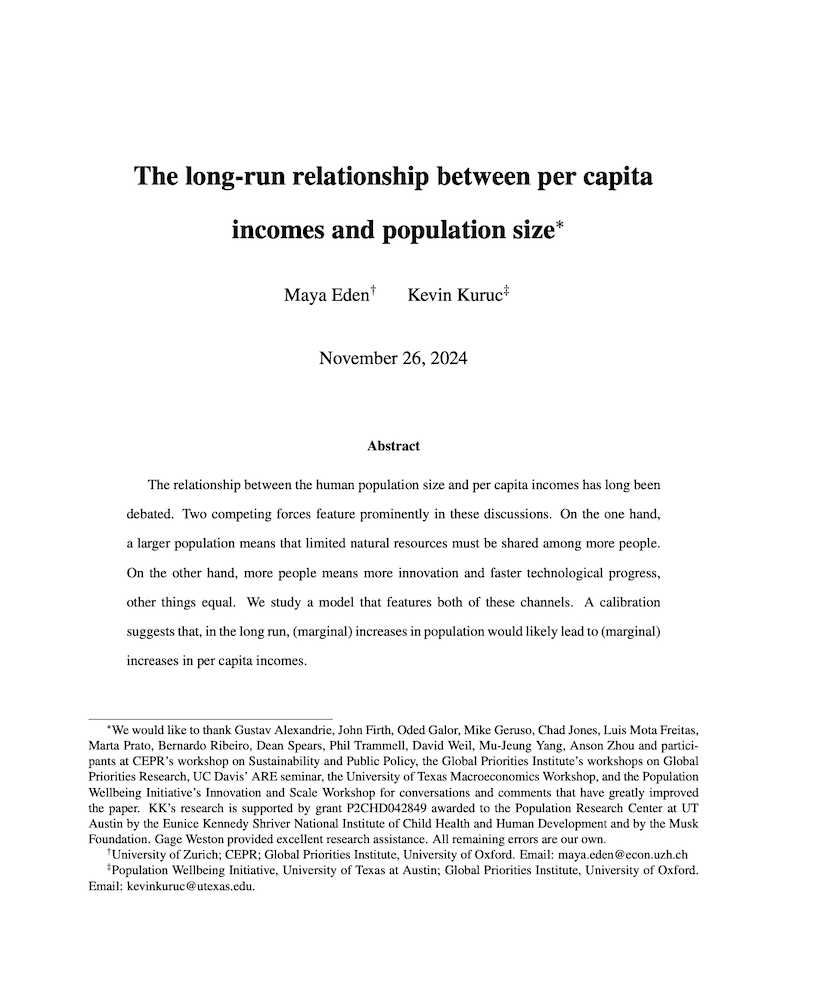The long-run relationship between per capita incomes and population size
Maya Eden (University of Zurich) and Kevin Kuruc (Population Wellbeing Initiative, University of Texas at Austin)
GPI Working Paper No. 29-2024
The relationship between the human population size and per capita incomes has long been debated. Two competing forces feature prominently in these discussions. On the one hand, a larger population means that limited natural resources must be shared among more people. On the other hand, more people means more innovation and faster technological progress, other things equal. We study a model that features both of these channels. A calibration suggests that, in the long run, (marginal) increases in population would likely lead to (marginal) increases in per capita incomes.
Other working papers
Quadratic Funding with Incomplete Information – Luis M. V. Freitas (Global Priorities Institute, University of Oxford) and Wilfredo L. Maldonado (University of Sao Paulo)
Quadratic funding is a public good provision mechanism that satisfies desirable theoretical properties, such as efficiency under complete information, and has been gaining popularity in practical applications. We evaluate this mechanism in a setting of incomplete information regarding individual preferences, and show that this result only holds under knife-edge conditions. We also estimate the inefficiency of the mechanism in a variety of settings and show, in particular, that inefficiency increases…
The weight of suffering – Andreas Mogensen (Global Priorities Institute, University of Oxford)
How should we weigh suffering against happiness? This paper highlights the existence of an argument from intuitively plausible axiological principles to the striking conclusion that in comparing different populations, there exists some depth of suffering that cannot be compensated for by any measure of well-being. In addition to a number of structural principles, the argument relies on two key premises. The first is the contrary of the so-called Reverse Repugnant Conclusion…
Misjudgment Exacerbates Collective Action Problems – Joshua Lewis (New York University) et al.
In collective action problems, suboptimal collective outcomes arise from each individual optimizing their own wellbeing. Past work assumes individuals do this because they care more about themselves than others. Yet, other factors could also contribute. We examine the role of empirical beliefs. Our results suggest people underestimate individual impact on collective problems. When collective action seems worthwhile, individual action often does not, even if the expected ratio of costs to benefits is the same. …
- « Previous
- 1
- …
- 35
- 36
- 37

